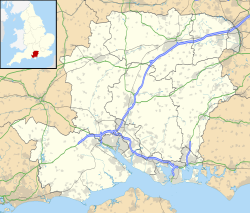History
In 1964, in response to an increasing amount of water-based leisure activity, the RNLI placed 25 small fast Inshore lifeboats around the country. These were easily launched with just a few people, ideal to respond quickly to local emergencies. [3]
More stations were opened, and in May 1965 a lifeboat station was established at Lymington, with the arrival of a D-class (RFD PB16) Inshore lifeboat, the unnamed (D-41). [2]
The D-class (RFD PB16) lifeboat (D-181) was withdrawn in 1973, and after a brief period with the larger twin-engined trial Atlantic-class lifeboat (B-6), the B-class (Atlantic 21) lifeboat Surrey Forester (B-519) was placed on service in August 1973. [1] [2]
A purpose-built boathouse was constructed in 1978 in a cost of £12,000. At a ceremony on 2 June, the boathouse was officially opened by Clare Francis MBE, the first woman to captain a boat on the Whitbread Around the World race. Francis was presented with an RNLI jersey and invited to be an honorary member of the Lymington lifeboat crew. [4]
At 18:30 on 17 December 1981, Harbourmaster and lifeboat helm Alan Coster was alerted by the Sealink Ferry office, to a fishing boat Al Mor, in trouble in gale force 7 conditions, near the mouth of the Lymington River. With his assistant Simon Chalk, another lifeboat crew member, they set out in the harbour launch to investigate. Soon realising that the lifeboat would be required, they returned, and the Lymington lifeboat Surrey Forester (B-519) was launched at 17:10. After several attempts, it was clear that the lifeboat could not get close enough. Coster, being the only crew member in a dry suit, handed over control of the helm, and under the floodlights of the Sealink Ferry, swam to the vessel, leading the two crew ashore through the marshes, to rendezvous with the lifeboat 1⁄2 mile (0.80 km) away at Pylewell. Helm Alan Coster was awarded the RNLI Bronze Medal, the other two lifeboat crew members accorded 'Medal Service Certificates'. [5] [6]
The station would receive the new improved B-class (Atlantic 75) lifeboat in June 2002. Funded by Mrs Iris Lovelock, Victor “Danny” Lovelock (B-784) replaced the 16-year-old Atlantic 21 lifeboat Frank and Mary Atkinson (B-566). [2]
Just three months later, Helm Nicolas Hayward would receive 'The Thanks of the Institution inscribed on Vellum' for a service on 9 September 2002. Before launching at 15:00 into force 9 conditions at the operating limits of the lifeboat, Helm Hayward checked with the crew that they were prepared to launch into such conditions. The 6.5 metres (21 ft) yacht Piciess had been caught out by severe weather that had not been forecast, and had suffered a broken mast and engine failure. On arrival at the vessel, experienced crew member Barry Down went aboard to secure a towline. Soon after the tow was started, he had concerns for one of the crew, so the tow was let go, and the lifeboat transferred the man to another larger yacht, Golden Corn, which had been standing by. The tow was regained, and due to the conditions, all three vessels headed to Cowes. Helm Hayward reported that the lifeboat crew were bruised after taking quite a beating during the 3-hour service, but praised the new lifeboat over the old one. Barry Down, Robin Mursell and Austin Honeysett each received 'A Framed Letter of Thanks signed by the Chairman of the Institution'. [7]
After discussions lasting nine years, the site for the new Lymington boathouse was chosen, to be on the old site. The new lifeboat house, costing £678,284 was constructed, and completed on 6 July 2006. The building has sometimes been nicknamed the 'Odeon', as it was designed in a 1930s style, in keeping with the surroundings. A retail shop was included, and local clubs can hire any vacant meeting rooms. Local resident Rufus Eyre funded state-of-the-art training facilities; a dedicated room with plasma screen, projector and laptop, and a computer network throughout the building. The station can now assume control of the numerous Solent area webcams, and can monitor rescues from the crew room. [8]


